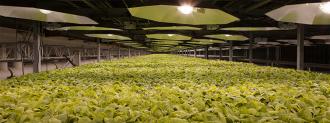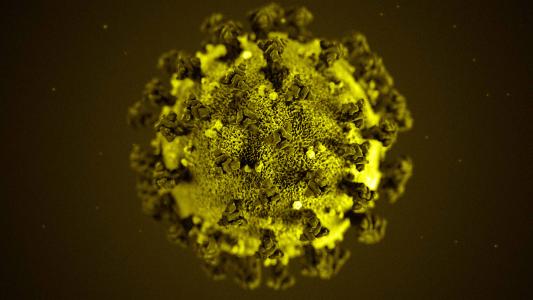Big tobacco announces "breakthrough" in plant-based coronavirus vaccine
British American Tobacco (BAT) says it has made a “significant breakthrough” in the development of a plant-based coronavirus vaccine.
On April 1, the company announced that its U.S.-based biotech subsidiary, Kentucky BioProcessing (KBP), has been using tobacco plants to develop a COVID-19 vaccine candidate.
The plant-based coronavirus vaccine is now undergoing pre-clinical tests — and if those go well, BAT says it could manufacture up to 3 million doses of the vaccine per week starting in June.
Vaccine Development
The purpose of a vaccine is to prepare the body’s immune system to fight a pathogen (a virus or bacteria).
Most vaccines do this by introducing the immune system to a weakened or dead form of the pathogen. In this state, the pathogen can’t infect the body, but it can trigger the immune system to produce antibodies against it.
If the immune system then sees the pathogen again, it immediately recognizes it and begins fighting it off.
To grow the key ingredient for vaccines, known as the antigen, researchers turn to the common chicken egg.
First, they inject the virus into a fertilized chicken egg and then let it replicate, just like it would in human cells. When they’ve got enough virus particles, they extract the virus-filled egg white from the egg.
After killing and deactivating the part of the virus that actually infects a person, they test the antigen repeatedly to make sure every last virus is dead. This quality-control process takes months, but it’s obviously crucial.
Eventually, they use the remaining antigens to make the vaccine, which then must be tested and approved by the FDA for use in humans.
KBP’s Plant-Based Coronavirus Vaccine
Researchers have been using eggs for vaccine development and production since the 1940s, and the process has proven effective.
However, it’s also incredibly time-consuming — it takes six months or more to produce a large quantity of the flu vaccine each year, according to the Centers for Disease Control and Prevention.
But the process KBP used to develop its plant-based coronavirus vaccine is different from the one used for egg-based vaccines — and it is a lot faster.
If pre-clinical tests go well, BAT says it could manufacture up to 3 million doses of the vaccine per week starting in June.
The firm produced a potential coronavirus antigen — just the part of the virus that triggers antibody production — using a cloned portion of the virus’s genetic sequence. It inserted that antigen into tobacco plants, let it reproduce, and then harvested it from the plants.
It takes just six weeks to develop a vaccine in this way as opposed to the several months needed for conventional methods, according to KBP.
The vaccine is now undergoing pre-clinical testing. If those go well, KBP hopes to quickly move forward on the manufacturing and delivery of a plant-based coronavirus vaccine to the public.
“Vaccine development is challenging and complex work,” David O’Reilly, BAT’s director of scientific research, said in a news release, “but we believe we have made a significant breakthrough with our tobacco plant technology platform and stand ready to work with governments and all stakeholders to help win the war against COVID-19.”





